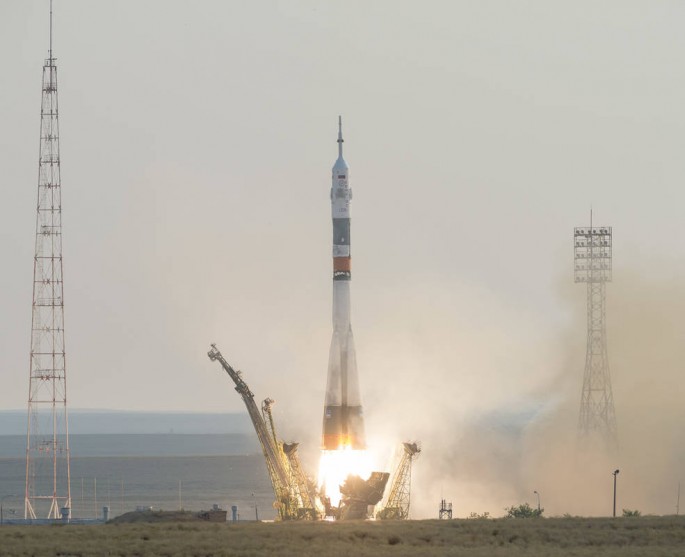On Wednesday, July 6, a spacecraft launched carrying three astronauts from the Baikonur Cosmodrome in Kazakhstan at 9:36 P.M. EDT. Aboard the new Russian Soyuz MS-01 spacecraft is a new crew from Russia, United States and Japan, who are headed to the International Space Station.
The new crew for the ISS includes NASA's Kate Rubins, Russian Roscosmos' Anatoly Ivanishin and JAXA's (Japan Aerospace Exploration Agency), Takuya Onishi. The three astronauts will run tests on modified systems for two days where they will then dock at the space station at 12:12 A.M. EDT on Saturday. This crew will join the Expedition 48 aboard the orbiting space laboratory, along with NASA Commander Jeff Williams and Roscosmos flight engineers Oleg Skripochka and Alexey Ovchinin.
NASA announced that the Expedition 48 members will now spend a duration of four months filled with 250 scientific experiments across the fields of Earth science, biology, human research and technology development.
Apart from this, the new crew aboard the ISS will also receive and install the first ever international docking adapter of the space station, that will be crucial for the arrival of "space taxis" or commercial space vehicles from the U.S. This new docking port will be sent via SpaceX's ninth commercial resupply mission, which will be installed with built-in systems for automatic docking.
Shortly after their arrival, the crew members are also expecting to receive Orbital ATK's sixth commercial resupply mission, including two Russian Progress capsule resupply flights, which will all sustain this mission, delivering several tons of food and research supplies including fuel.
The new and upgraded Soyuz spacecraft is developed and manufactured by Russian aerospace manufacturer RSC Energia, where the Soyuz MS-01 will also be docked at the space station for the rest of the mission as a rescue vehicle for the crew, in the event of an emergency that which will safely transport the crew back to Earth.



























